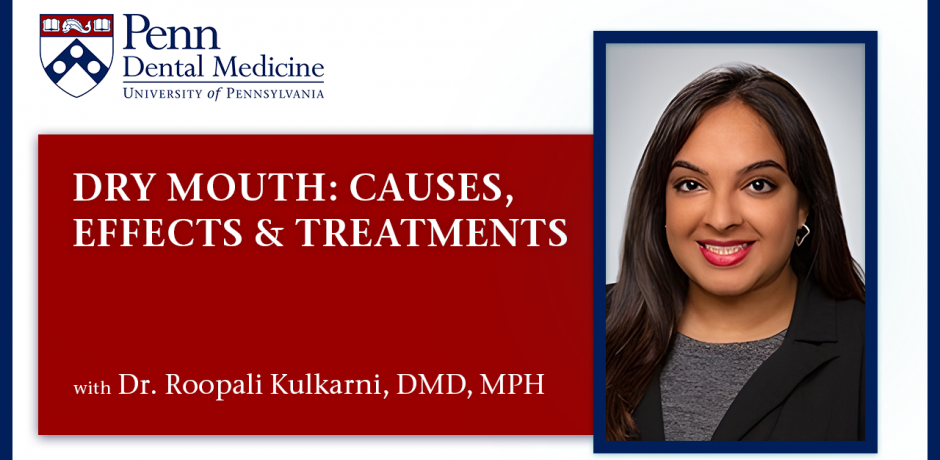
What Causes Dry Mouth—And How Can It Be Treated?
What causes dry mouth can vary, but a wide range of effective treatment for dry mouth symptoms also exists. Find out how Penn Dental Medicine can help you.

I couldn’t have been more impressed with the quality of care and knowledge of the student dentist who I saw. She put me at ease and made me feel comfortable with the procedures being performed at every step of my care. I usually am nervous about going to the dentist, but am actually looking forward to my next appointment.
At my first experience at the Penn Dental Medicine clinic, they were on time, personable, and exceptionally thorough. The medical history they took was the most thorough I ever had at a dental visit. They were patient and willing to answer any questions. I was assigned a dentist (student) who was friendly and concerned about all my worries. If the rest of the procedures go this well, I will feel that I have made a particularly good choice.
If this will be your first visit to Penn Dental Medicine, click below to learn what you need to bring, what communication you will receive, and what to do if you need to change your appointment.
Robert Schattner Center
University of Pennsylvania
School of Dental Medicine
240 S. 40th Street
Philadelphia, PA 19104
Hours:
Tuesday, Thursday, Friday — 8 am to 5 pm
Monday, Wednesday – 8 am to 8 pm
Make an Appointment 215-898-8965
Get Directions
4001 Walnut Street
Philadelphia, PA 19104
(above Acme at 40th & Walnut Streets)

Going to dental schools for dental work is the best way to get high-quality treatment at a low cost. Discover how Penn Dental Medicine saves you money.

Receiving regular dental treatment is critical for not only your oral health but also your overall health. Unfortunately, about one-quarter of people...

Do you know when to see a dentist for tooth pain? It may be sooner than you think. PDM has the facts you need to make the right decision.
Get Your Appointment Now
We look forward to serving you and your family.